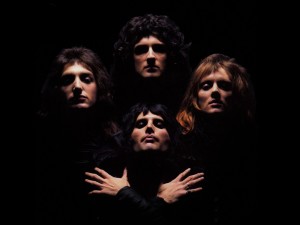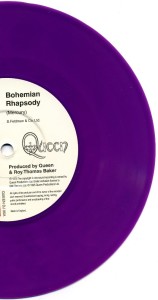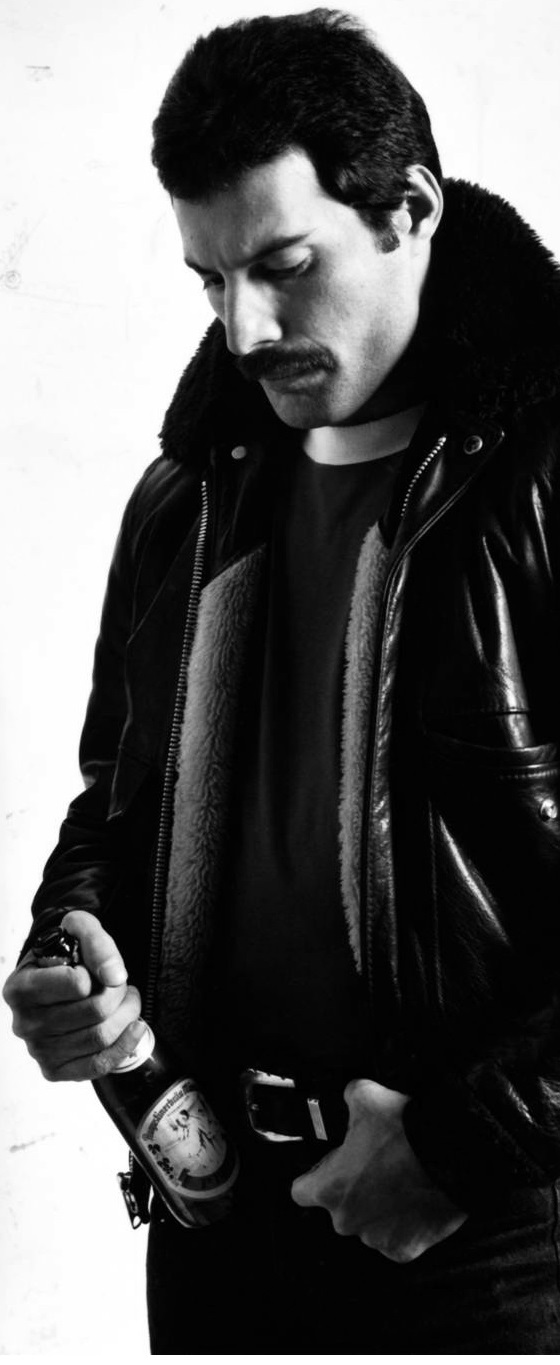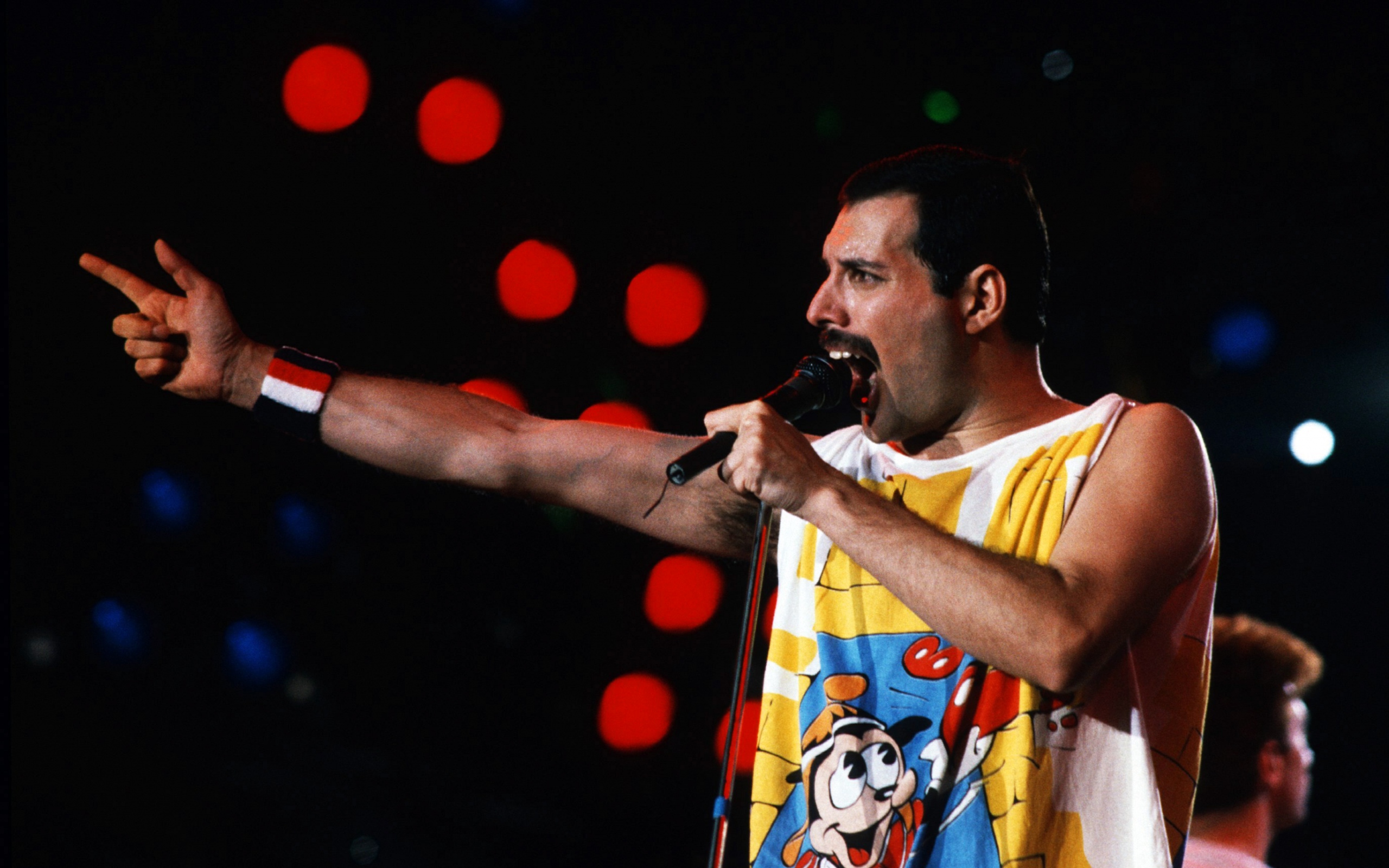Today, 1st of December, is the World AIDS Day. Sigurður Júlíus Guðmundsson has some thoughts on the disease that has impacted the queer community in such a deep way.
The 31st of October marked the 40th anniversary of the release of one of the greatest rock songs in music history. Millions, even billions, of people have heard the song. So it’s kind of strange to come across a person who hasn’t heard the song or even it’s name, “Bohemian Rhapsody”.

Released in 1975 by the band Queen the song was almost rejected by the record company because of its unusual sound and length – the song was so long that executives feared it wouldn’t get airtime. At almost 6 minutes long, it was much longer than the average pop song of the time and because of that radio stations were indeed hesitant to play it. But the song got air time on a handful of radio stations and became demanded by listeners. The record company and mainstream radio therefore had to accept the song. And soon it became the most popular song in the UK as well as being very big in many other countries, eventually becoming one of the most revered songs in popular music history.
For most people, that is the end of the story behind the song. We all sing along to the weird lyrics, “Mama, just killed a man, put a gun against his head. Pulled my trigger, now he’s dead…” and so on. Many people know the lyrics well enough to recite the song flawlessly at parties when it’s played. And then it’s finished and people go on with their lives.
But for some of us, there is a deeper story to the song, a much deeper story. Bear in mind that I love music. I love to sing. I love Queen and I have always placed the band’s singer Freddie Mercury on such a high pedestal that I never wanted to sing his songs publicly, until my choir, The Reykjavík Queer Choir, decided to do a rendition of the song and I was forced to break my rule and take part in honoring the song and it’s writer. It ended up being one of my prouder moments, standing in front of a crowd of people with my choir mates and singing this amazing song drenched in queer history.
 And that is the part of the story behind the song that becomes forgotten. There are so many connections to the LGBTQIA+ community, culture and history bound to this song that most people never realize. Of course many people know that Freddie Mercury was considered to be gay, although he never used the word “gay” to describe himself and in fact considered himself bisexual, having had long-term meaningful relationships with both men and women. Regardless, he definitely was not straight.
And that is the part of the story behind the song that becomes forgotten. There are so many connections to the LGBTQIA+ community, culture and history bound to this song that most people never realize. Of course many people know that Freddie Mercury was considered to be gay, although he never used the word “gay” to describe himself and in fact considered himself bisexual, having had long-term meaningful relationships with both men and women. Regardless, he definitely was not straight.
The song itself was written around the same time as Freddie was entering into his first same-sex relationship. And Brian May, Queen’s legendary guitarist has said that, although Freddie never explicitly said anything about it, he always believed that the intense lyrics and the song itself was about his inner turmoil leading up to his relationship with another man. For a queer person listening to the song, it doesn’t take much to identify with the lyrics. The heartache, the rejection, the loneliness, and the eventual rebellion and reclaiming of the self. It’s a theme that we all know from coming out to ourselves and making the choice to live free of the judgment of other people.
I listened to the song for the umpteenth time on the 31st of October, alone in my office and I was overwhelmed by emotions; listening to this legendary man singing and describing all the emotions and turmoil that I myself experienced before accepting myself as a queer man brought me to tears. Thinking about the eventual fate of Freddie and the utter pointlessness of his death.
Freddie Mercury died from bronchial pneumonia resulting from AIDS on the 24th of November 1991. It would be another five years until an effective drug to combat the symptoms of HIV/AIDS was released. By that time, millions of people had died from the disease.
“I listened to the song for the umpteenth time on the 31st of October, alone in my office and…it brought me to tears. Thinking about the eventual fate of Freddie and the utter pointlessness of his death.”
The sad thing about the AIDS epidemic was how long it took governments and health officials to start focusing on research and putting adequate funding into combating the disease. Many feel that the lack of interest in the disease was mainly due to the labeling of AIDS as a gay disease. Politicians often talked about it as a behavioral problem and that homosexuals should “just keep it in their pants”. Not much talk went into the fact that anyone could become infected and that the use of condoms would greatly reduce the risk of infection.
Perhaps the focus on queer people had to do with the fact that the queer community, at least in western societies and especially in the USA, was in the forefront of the fight to get governments to join the battle against the disease. The epidemic thrust queer activists into the spotlight and organizations were forced to get organized like never before. The need for political involvement became far more necessary and education a crucial part of the operations.
The fact remains that the complacency of the majority of people towards the disease may have resulted in millions of unnecessary deaths.

If proper funding and research would have started in the beginning of the epidemic it might have resulted in millions of lives saved. This and the sad fact that the disease left a huge gap in an entire generation of queer people has made HIV/AIDS one of the most influential, yet horrific, battles of queer rights history.
And the battle is far from over.
To this date, there still is no known cure for the virus. Although drugs can halt the virus and render it effectively undetectable in the body and people in most western societies living with the virus live relatively full lives, the drugs do have side effects that may not be so pleasant. And they are not cheap. In less developed countries people may not even have access to the drugs needed to keep them alive and others may not be able to afford them.
For those reasons and many more today is the perfect time to take a moment and remember those people who came before us and the culture that they created and we inherited. To remember those who cannot be with us because they were not deemed equal enough to get the same treatment as others. To remember our friends, our loved ones and our idols who didn’t survive the fight to live equal. It is important for us to remember their sacrifice and the millions who lost their lives so that we could live on and live more free; lives free of shame. To remember that we once had to fight for our lives when the rest of the world looked away. To remember so that we don’t wake up one day and find that society has changed its mind about us once again and isn’t as welcoming towards us as it is now.
Today, on World AIDS Day, The HIV Iceland organization will host an open house at their community center on Hverfisgata 69, in Reykjavík, between 15 and 18PM, to raise awareness and show support for people living with HIV. It is the perfect time to show up to remember together that our little queer community has a common history and culture that we should celebrate and be proud of.
[add_single_eventon id=”14079 ” show_excerpt=”no” ]


